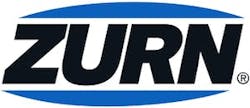2019 Contractor Giants Report: General contractors pursue Lean, prefab, safety, data
By David Barista, Editorial Director
The nation’s largest general contractors and construction managers continue to adapt and innovate to thrive in the highly competitive U.S. construction market. Below are the latest developments from our 2019 Contractor Giants.
The 2019 Contractor Giants Report is sponsored by Zurn. Also check out the Top 160 Contractors report and Top 80 CM+PM Firms rankings, brought to you by Zurn.
New developments from the Contractor Giants:
• On a mission to create the “hard hat of the future,” Clayco teamed with 14 students and two faculty members from the Savannah (Ga.) College of Arts and Design (SCAD) on a yearlong research project. The initiative involved conducting interviews with construction professionals, jobsite visits, an online survey of 188 industry professionals, and a comparative study of safety helmet technology. It led to the development of two prototypes, Pollux and Captain (BDCnetwork/ClaycoHardhat).
• DPR Construction is beginning to widely implement multi-trade, digitally-produced, prefabricated elements, including load-bearing components, on its projects. DPR says its prefab strategy is advantageous for its core markets—data centers, healthcare, industrial, office, S+T, university—and has proven to reduce project schedule and increase on-site safety.
• Gilbane launched the Gilbane Drone Program, in part, to shift the risk of utilizing drone technology to an external party. The internal portion of the program is focused on gathering “low risk” data to support project pursuits, progress documentation, and 2D deliverables. The “high risk” engineered design data gathering is outsourced to mitigate risk and high costs. Other contractors that are expanding drone usage:
• Absher Construction, for aerial surveying of sites to assess cut/fill and building siting. Says the firm: “It allowed us to be accurate within a quarter of an inch, minimizing earthwork requirements and saving the client several million dollars.”
• Austin Commercial, primarily for façade scanning and QA/QC for pre/post concrete pours.
• Walbridge, for inspecting elevated work (interior and exterior), which reduces the need for inspectors in personal lifts and engineers from even traveling to the jobsite.
• Haselden Construction created a “business integration team” to ensure all departments work together as seamlessly as possible and are equipped with the proper tech tools. Big wins so far: implementation of a mobile device management tool for all Haselden-issued iOS devices, and a shift to private cloud-based servers.
• James G. Davis Construction and W.M. Jordan Company report having success implementing the last planner system (LPS) on projects. The goal of LPS—which involves utilizing Lean scheduling and programming tools such as pull planning—is to create and maintain buy-in at all levels at every stage in the construction process.
• Kaufman Lynn Construction launched a social-media-styled communication channel, called KLiX, to help increase employee engagement and education. The portal provides its 200+ staff members across three states with everything from industry news to OSHA training presentations to job-related data.
• Manhattan Construction’s professional development program, Manhattan Builder’s Academy, includes a mix of in-person and online educational programs. Educational assignments are tied to employees’ yearly performance goals.
• Mortenson Construction in June entered into a strategic partnership with Built Robotics, a developer of autonomous robotic equipment technology. The two companies will work in tandem to develop Built Robotics’ equipment upgrade kits specifically for heavy civil earthmoving on renewable energy projects.
• Pepper Construction’s new Building Performance Tool demonstrates to clients the real-time financial impact of design decisions and systems on their projects. (Pepper’s Susan Heinking, AIA, LEED Fellow, demonstrated the tool at BD+C’s 2019 Accelerate AEC Conference, BDCnetwork.com/Accelerate19Talks.)
• Robins & Morton’s Building Forward program encourages entrepreneurial thinking and creativity in the workplace. Early results: BuildFore, a startup launched by three R&M schedulers focused on developing collaboration and efficiency tools, like the Lean app SlatPlanner (slatplanner.com).
• Suffolk Construction’s Risk X: Safety Management Tool uses predictive analytics to inform its project leaders of potential and actual jobsite safety risks, in real time. Results from year one (2017-2018): 28% drop in total incident rates and 39% drop in lost time due to safety incidents.
Safety initiatives at other construction firms include:
• Balfour Beatty US is using gaming-based VR tools to develop interactive simulations that train workers to make smart choices when performing one of the most hazardous tasks in the industry: working at height.
• Hoar Construction launched its “leading indicator safety initiative,” which utilizes data from jobsite safety inspections, pre-task safety analysis surveys, and safety meeting surveys to identify problem areas.
• KBE Building Corp. is implementing Triax Technologies’ Spot-r monitoring system on its jobsites. The wearable GPS device tracks the exact time, location, and distance of a fall with a change in elevation of two+ feet.
• Skanska USA continues to innovate using BIM/VDC-based safety coordination. For instance, the firm has optimized projects to reduce the need for ladders—a major source of construction injuries—on the jobsite during construction.
• Skender’s 105,000-sf modular factory on Chicago’s southwest side is fully operational. The firm is among a handful of traditional GC firms to build permanent offsite construction factories in recent years (the others: DPR and PCL).
• As part of its newly launched Redefining Green initiative, Turner Construction will aim to reduce water and energy consumption by at least 50% on a select number of jobsites. The firm already diverts, on average, 75% of jobsite waste from landfills. Turner’s sights are set on resource consumption during construction. It has selected 30 projects, across different building typologies, to participate in a pilot program that, over the next 18 months, will meter those projects on all forms of C02 emissions and water use, including onsite fuel use (BDCnetwork/TurnerRedefinesGreen).
• Webcor’s Culture Conversations initiative aims to assess and support the workplace and career satisfaction of its 759 employees. The program uses open dialog sessions, discussions, and surveys to learn what Webcor staffers want to feel, see, and experience while working at the firm.

